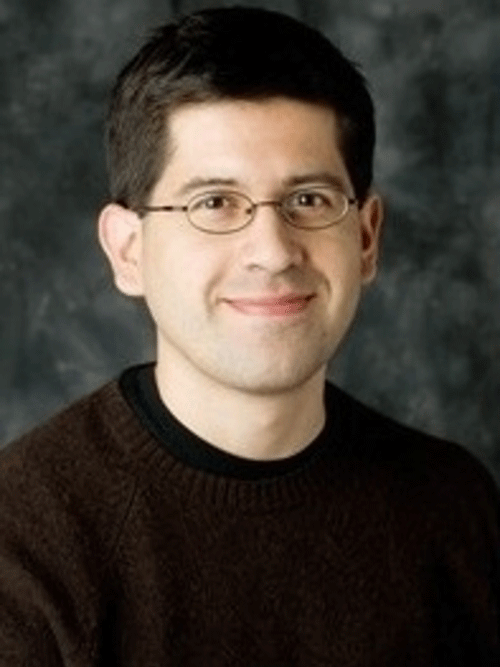 Stephen Maldonado is an associate professor at the University of Michigan, where he leads a research group that focuses on the study of heterogeneous charge transfer processes relevant to the fields of electronics, chemical sensing, and energy conversion/storage technologies. He was recently reappointed as an associate editor for the Journal of The Electrochemical Society (JES) in the area of physical and analytical electrochemistry, electrocatalysis, and photoelectrochemistry.
Stephen Maldonado is an associate professor at the University of Michigan, where he leads a research group that focuses on the study of heterogeneous charge transfer processes relevant to the fields of electronics, chemical sensing, and energy conversion/storage technologies. He was recently reappointed as an associate editor for the Journal of The Electrochemical Society (JES) in the area of physical and analytical electrochemistry, electrocatalysis, and photoelectrochemistry.
ECS: When did you become an ECS associate editor? What made you pursue an editorial role at ECS?
Stephen Maldonado: I started my time as an ECS associate editor in 2014. I pursued the opportunity for two different reasons. The minor reason was that I was genuinely curious about the “sausage making” process of accepting/rejecting a paper. That is, as an author, I had prepared and submitted plenty of papers but I had little idea about the other side of it. I had reviewed plenty of papers, too, but how those reviews factored into the final fate of the submission was a mystery.
The major reason, though, is that electrochemistry has been a principal aspect of my adult life. I got into science because, at a fundamental level, I thought electrochemistry was cool. Accordingly, my interests were aligned with the ECS at the start and it has been a major influence on my professional development. After getting tenure, I felt the time was right to give back to this community. So when I was asked to consider the position, I jumped at the chance.
ECS: What separates ECS journals from others in the field?
SM: I love the fact that ECS is moving to a true open access model. The Free the Science initiative exactly represents what sets ECS apart from other publishers. We are a society that cares about publicizing and maintaining our discipline. ECS publications are not profit-driven; they’re science driven.
ECS: How important is the peer review process to the integrity of scholarly publishing?
SM: Essential. Without peer review, there is no value in scientific reporting. Vetting and reviewing are essential to legitimize the findings. It doesn’t mean that the interpretations are right or that a given study is without flaw, but it does mean that the work has passed some basic level of scrutiny. Without peer review, the distinction between objective findings and subjective messaging becomes indistinguishable.
ECS: How has open access affected scholarly publishing?
SM: It’s mixed. I strongly dislike the idea of pushing the cost of open access to the individual authors. That puts an impediment in scientific dissemination that does not directly relate to the quality of the science. I think ECS is doing it right by having a public and transparent fundraising campaign in addition to an organizational structure that minimizes cost to its members.
ECS: How could opening access to research help bolster innovation?
SM: A personal scientific motivation of mine is to enable the realization of semiconductor technologies with the simplest infrastructure possible. Open access is complementary to that concept. If as many people as possible have access, and can contribute, to the scientific literature, then the probability of idea advancement increases.
ECS: What role does electrochemistry have in solving some of society’s most pressing issues?
SM: My personal belief is that simplifying the requirements for manufacturing existing and future technologies is impactful. For example, an electrochemical process that yields high quality silicon directly from raw silica has the potential to revolutionize the energy and electronic industries. Doing that would go a long way to making sure everyone on this planet has access to cheap electricity and basic technology.
ECS: What has enabled the JES to continuously publish since 1902? What do you think has been the journal’s key to success?
SM: Scientists! At the end of the day, the fate of JES and any other journal is dictated by scientists performing quality research and the value society places on their work. The long history of JES and the continued interest in its topics are testaments to the role electrochemistry plays in modern society. As long as society finds value in electrochemical technologies, JES will be successful.


